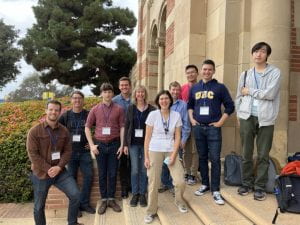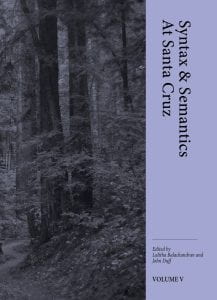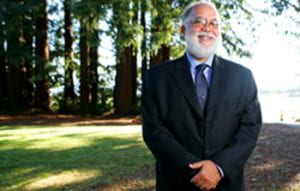There was a large UCSC contingent at CreteLing 2022 this year, the annual linguistics summer school hosted at the University of Crete in beautiful Rethymno. Two current faculty members, Professors Ivy Sichel and Donka Farkas, and incoming faculty member Professor Roumyana Pancheva, taught classes over the two-week program. Nine students from UCSC, both undergraduate and graduate, attended these classes and others. Here are some quotes from participants about their favorite part of the program:
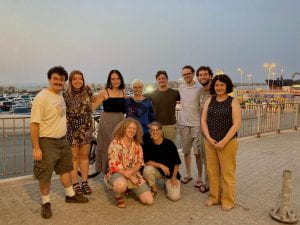
UCSC students and professors at the Port of Rethymno. From left clockwise: Owen O’Brien (senior), Sophia Stremel (PhD), Sadie Lewis (senior), Donka Farkas (faculty), Eli Sharf (PhD), Jackson Confer (alum), Matthew Kogan (MA), Roumyana Pancheva (faculty), Ivy Sichel (faculty), and Niko Webster (PhD).
“Easily, the best part was getting to know so many brilliant professors and students from around the world, both in the classroom and out. Conversations with new friends were consistently insightful and rewarding, and I loved being able to explore the island during down time and end the days with good food and night swims in such great company.” – Jackson Confer, alum
“At CreteLing, I enjoyed many of the meals we shared together, lunch between classes, and late-night dinners, where everyone was welcome and we seemed to keep cramming chairs around the table. Some of the most exciting conversations were had over a great meal and a view of the Mediterranean.” – Sadie Lewis, senior
“I really enjoyed going out with our big Santa Cruz cohort to enjoy the tremendous food and culture in Crete. I was quite excited to be thinking about Linguistics with everyone in this very vacation-esque setting.” – Matthew Kogan, 2nd year MA

Donka Farkas, Professor Emerita at UCSC and Sabine Iatridou, Professor at MIT and Co-Director of CreteLing
“It was pure joy to be in a real classroom with real live students again. I loved interacting with the large and lively UCSC contingent, in class, at Brew your Mind cafe, on the bus, or even during a brief forced march from the classroom to the bus station.” – Donka Farkas, Professor Emerita
“I enjoyed dancing: whether in the club or in the streets!” – Owen O’Brien, senior
“Wednesday was our off-day in the middle of the week. I loved going to the local beach and swimming in the warm Mediterranean on this day, having some time to enjoy the sun and think about ideas I learned in class the previous few days.” – Eli Sharf, 2nd year PhD

UCSC MA student Delaney Gomez-Jackson enjoying the bus ride back to downtown Rethymno after a long day of classes
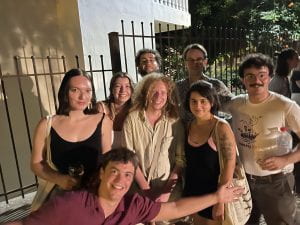
UCSC students celebrating at the dinner and dance party hosted on the final night of the program. From left clockwise: Sadie Lewis (senior), Sophia Stremel (PhD), Matthew Kogan (MA), Jackson Confer (alum), Owen O’Brien (senior), Elifnur Ulusoy (MA), Niko Webster (PhD), and Eli Sharf (PhD).

A collage of film photos of the Rethymno campus taken by Delaney Gomez-Jackson.
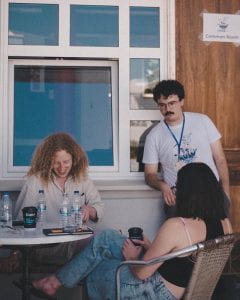
Niko Webster (left), Owen O’Brien (right, back), and Sadie Lewis (right, front) hang out and drink coffee in front of the common room during a class break.
